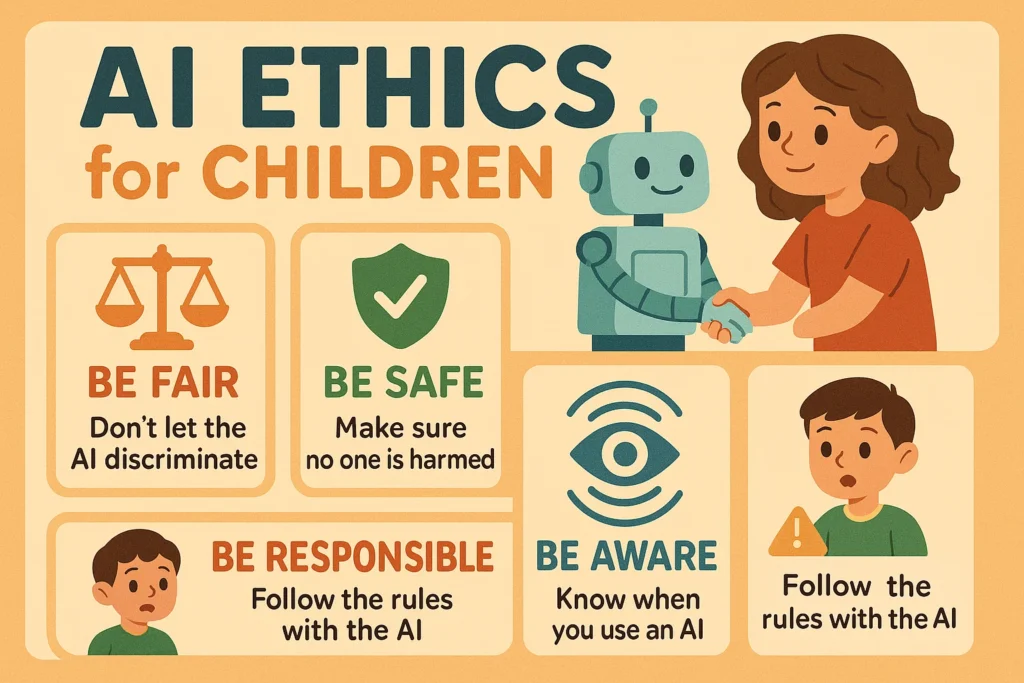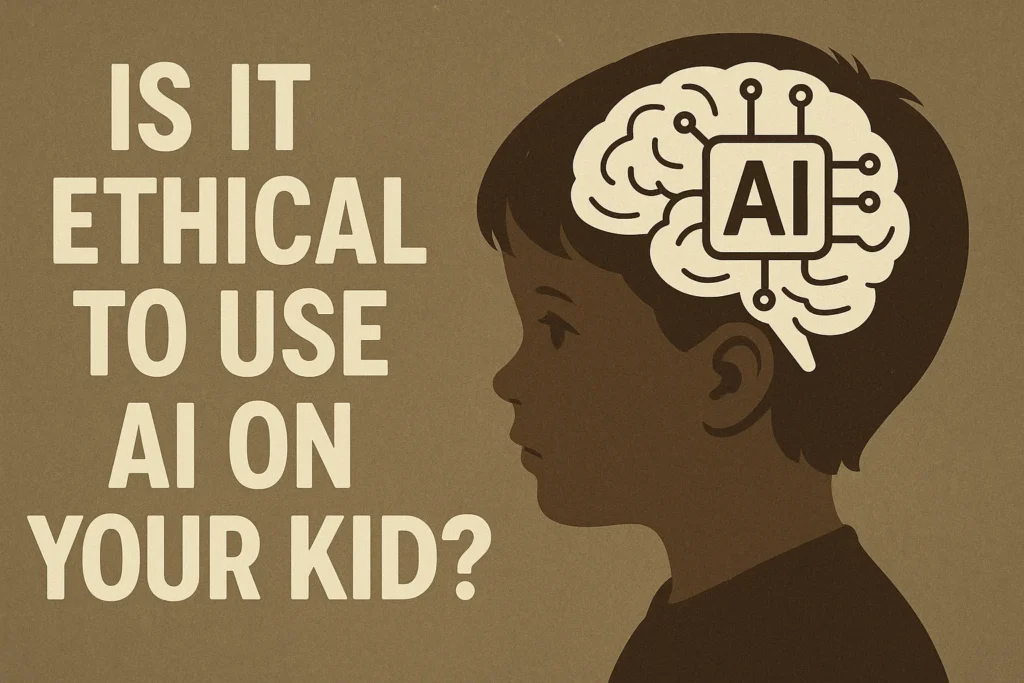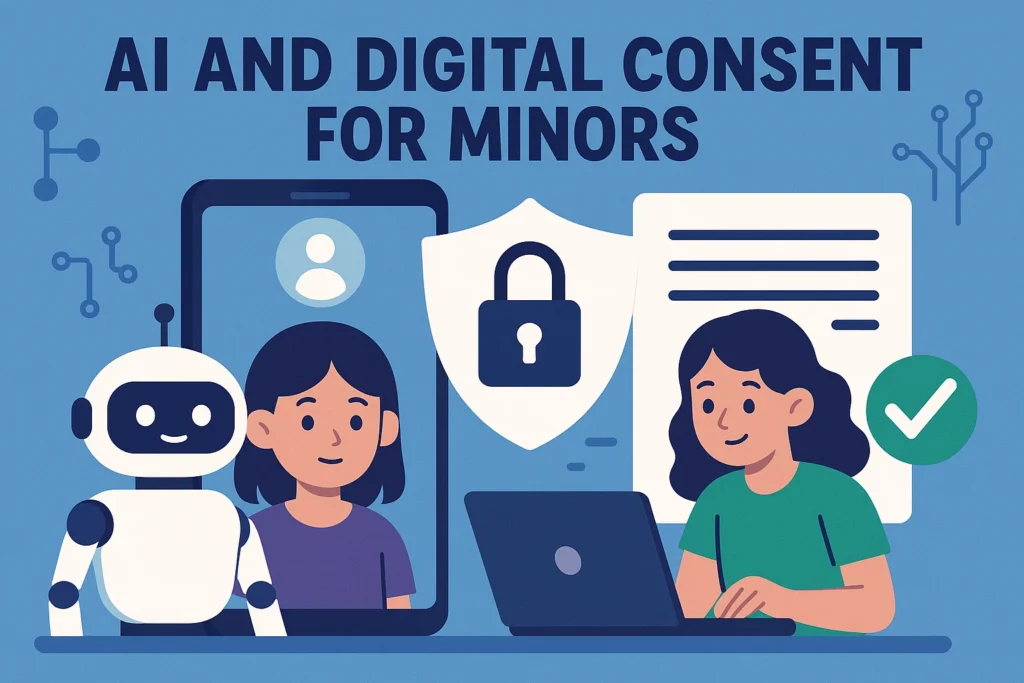🌟 Introduction
As Artificial Intelligence becomes part of daily life, children are interacting with it earlier than ever. From AI voice assistants to learning apps, kids need guidance not just on how to use AI, but on how to use it responsibly. At AiBlogQuest.com, we explore practical steps for Teaching AI Ethics to Children, so they grow up with both curiosity and awareness.
🧒 Why Kids Need AI Ethics Early
-
AI is shaping their world 🌍 – from classrooms to playtime.
-
Ethical awareness prevents misuse ⚖️ – kids learn to respect privacy and fairness.
-
Future job readiness 💼 – tomorrow’s careers will require ethical AI knowledge.
📖 7 Smart Ways to Teach AI Ethics to Children
-
Start with Stories 📚 – Use simple tales to explain fairness, privacy, and honesty.
-
Explain Bias in AI 🤖 – Show how voice assistants or games might make mistakes.
-
Practice Digital Responsibility 💻 – Teach kids what data they should or shouldn’t share.
-
Encourage Critical Thinking 🧐 – Ask them, “Should AI decide this, or should humans?”
-
Role-Playing Games 🎭 – Let kids act as “AI” making decisions, then reflect on fairness.
-
Discuss Real-Life Examples 🌟 – Talk about AI in schools, online safety, or toys.
-
Lead by Example 👨👩👧 – Parents’ own responsible AI use sets the tone.
🔗 Useful Links – AiBlogQuest.com
-
Is It Ethical to Use AI on Your Kids?
-
AI and Children’s Mental Health
❓ FAQ
Q1: At what age should children start learning AI ethics?
Even primary school kids can begin with simple lessons about fairness and honesty.
Q2: Can schools teach AI ethics?
Yes, many schools are integrating digital citizenship and AI awareness into their curriculum.
Q3: What’s the biggest lesson for kids about AI?
That AI is a tool, not a replacement for human values like kindness and respect.Teaching AI Ethics to Children



